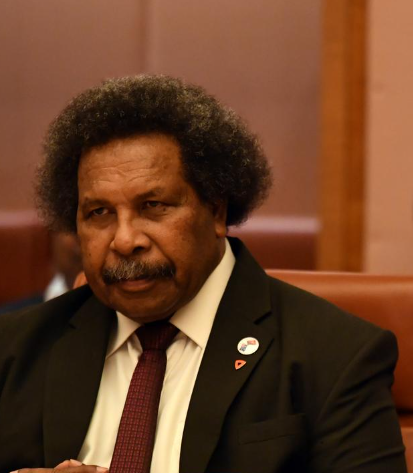A significant controversy has erupted over the government’s decision to implement dual voting methods for the upcoming Local Level Government (LLG) President elections.
The debate, sparked by North Fly MP James Donald’s vocal opposition, has drawn sharp contrasts between government officials and critics.
Mr. Donald, leader of the People’s Reform Party, today (Tuesday, June 18) lambasted the government’s approach, calling it “indecisive and a clear demonstration of poor leadership.”
His criticism is focused on the decision to allow the Highlands region and Morobe province to elect their LLG presidents through ward councilors, while other provinces will have direct elections by the people.
Donald argues that such a dual system undermines the fairness and integrity of the election process.
“An election must be free and fair for all members of society and should be uniform to ensure it is fair across the nation. How can one region and one province vote one way, and the rest of the country vote another way?” Donald remarked.
He stressed that this disparity highlights the government’s lack of confidence and capability to manage national affairs effectively.
However, in defence of the government’s decision, Minister for Provincial and Local Level Government Affairs Soroi Eoe last Thursday (June 13) in Port Moresby, publicly provided a detailed explanation during the official presentation of proclamations and LLG gazettes to the PNG Electoral Commission.
Minister Eoe emphasized that the law provides for two methods of electing LLG heads: by LLG members in the Assembly or directly by the people.
He said the decision to allow dual voting methods was made after careful consideration of past election issues and current law and order situations in certain parts of the country.
He said the decision is based on practical realities, elaborating that, “Cabinet, in its wisdom, has approved both methods of electing LLG Heads based on choices made by the respective provincial governments.”
He highlighted that those eight provinces, including Hela, SHP, Enga, WHP, Jiwaka, Simbu, EHP, and Morobe, will maintain the current system of electing LLG heads by councilors, while 12 other provinces will have direct elections by the people.
The Minister further stated that this will ensure effective election management, agreed in collaboration by the Chief Electoral Commission Mr. Simon Sinai from the PNG Electoral Commission, who was also with the minister during the announcement.
The minister further defended the decision by pointing out the practical challenges and varying conditions across different regions.
“Considering the current law and order situations in certain parts of the country, this approach allows for flexibility and ensures that elections can be conducted effectively and safely,” Eoe stated.
Despite the controversy, preparations for the 2024 LLG elections are well underway.
As confirmed by Minister Eoe, the tentative dates for the election process are set, with the issue of writs on 25th July, nominations closing on 1st August, and polling starting on 24th August.
The government has also committed to ensuring that all necessary resources are available to conduct successful elections.
The dual voting system has stirred mixed reactions from the public and political figures.
The situation is further complicated in West New Britain, where current LLG presidents claim to be in the dark about whether their seats will be decided by popular vote directly by the people or by ward councilors.
East Nakanai LLG President, M. James Laula has called on Governor Sasindran Muthuvel for clarity, while Deputy Governor Joe Naipu has taken his concerns to the top – by appealing to Prime Minister James Marape and his Cabinet to defer the LLG elections to 2027, citing slow progress in updating the LLG Common Rolls and insufficient funding.
“People without names in the common roll book cannot vote,” Naipu warned, highlighting a critical issue that could exclude many voters.
The confusion about which provinces will use which election method can be cleared because Minister Eoe had explicitly explained on Thursday last week that, “NEC has approved eight (8 provinces to maintain the current system or method, which is electing LLG Heads by elected councilors in the LLG Assembly.”
“The 8 provinces are Hela, SHP, Enga, WHP, Jiwaka, Simbu, EHP and Morobe Province.”
“NEC has also approved for a determination to be made by the Governor General under Section 234(2) of the Organic Law on National and Local-level Government Elections for 12 other provinces to elect their LLG Heads directly by the people.”
“The 12 provinces for direct election by people are Madang, East Sepik Province, West Sepik Province, Northern, Alotau, Central, Gulf, Western, Manus, New Ireland, West New Britain, East New Britain.”
Meantime, Minister Eoe also confirmed a total of 6, 831 Wards, and 372 LLGs are expected to go for election in the 2024 LLG Election.
He said this is an increase of in the total numbers by 456 new wards and 41 new LLGs, from the existing 6,375 Wards, and 331 LLGs, further stating that “there may be little change because there are still few submissions going through the process of proclamation.”

